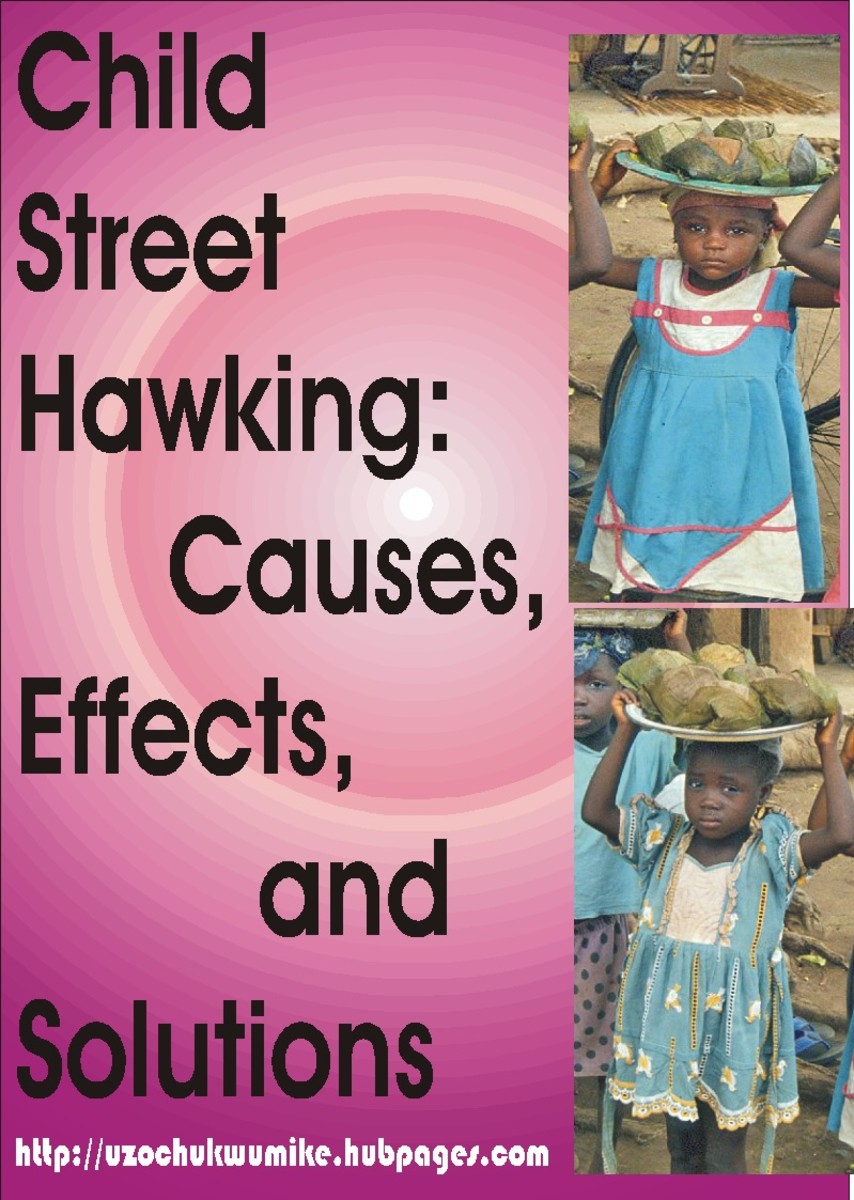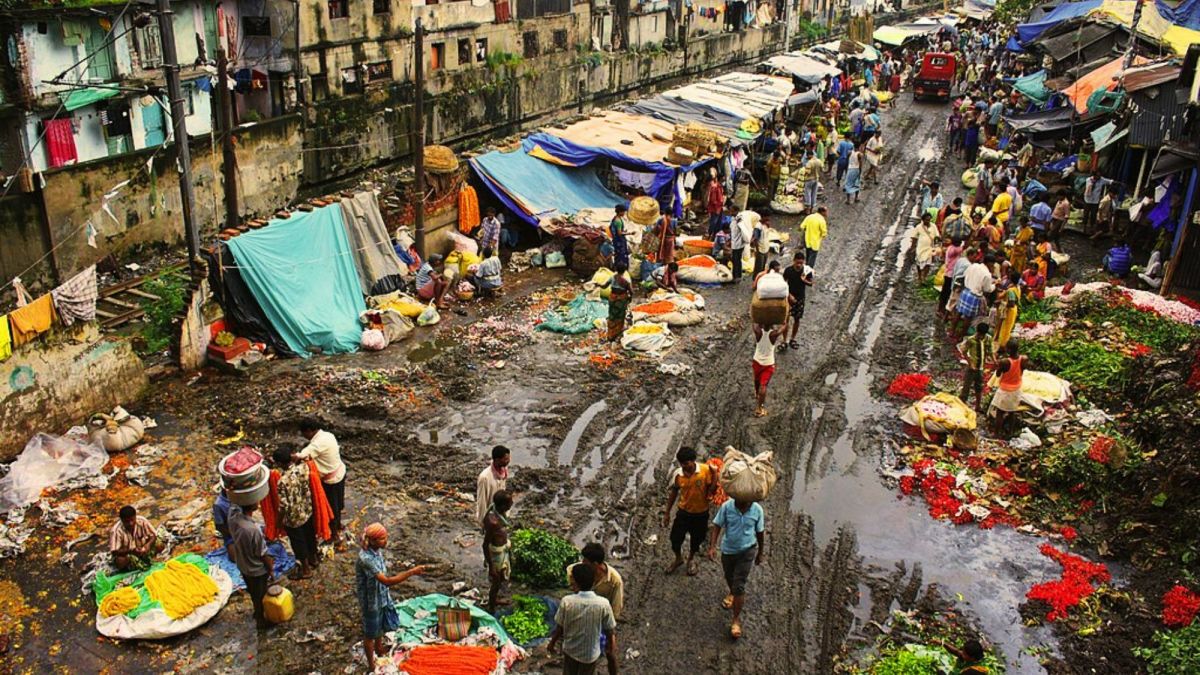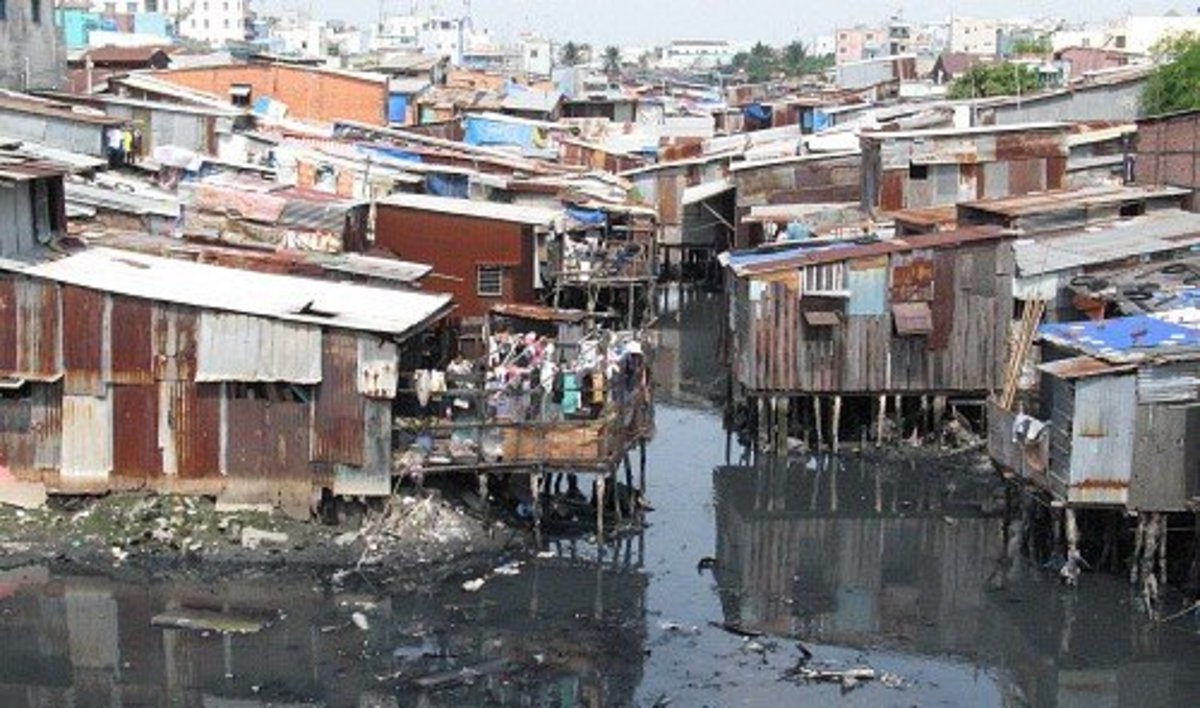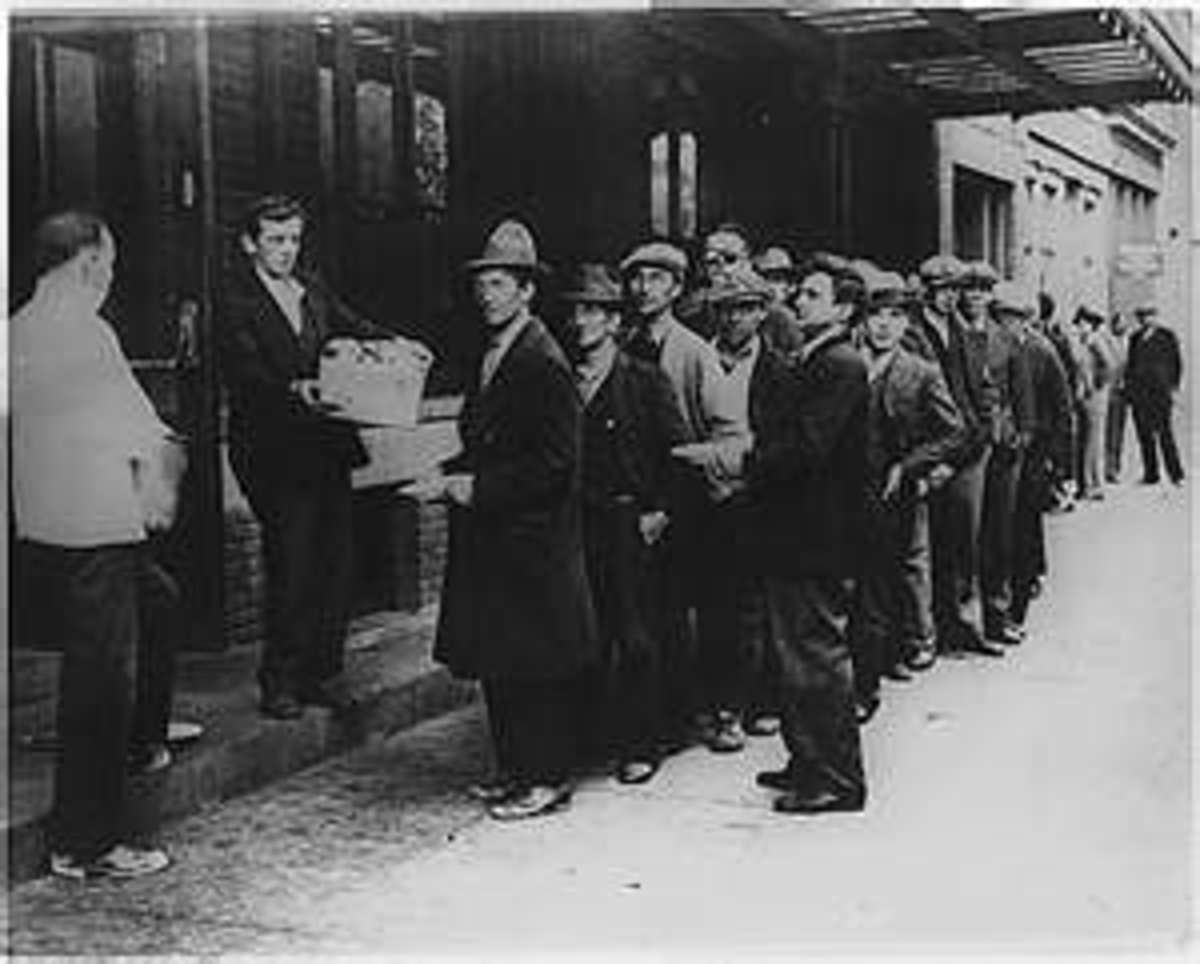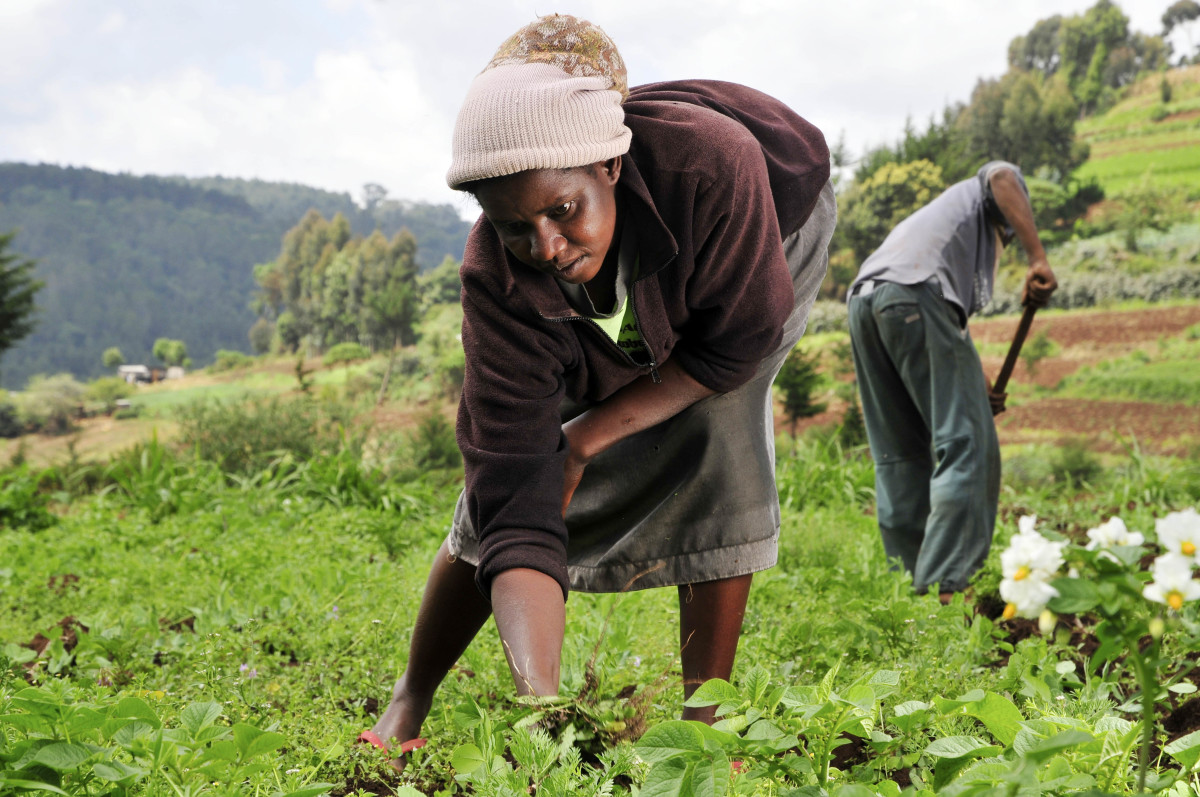Why Is There Still Much Poverty in Even the Richest Nations?

What Causes Poverty?
Poverty in otherwise 'rich' nations: what causes it?
There are, unfortunately, all kinds of poverty. The poverty of losing a good paying job, or of losing a bare-subsistence job, or of being unemployed or under-employed for years, or of having little or no prospect of ever finding a good job. The poverty of not having health care, or of being seriously ailing and in deep medical debt. The poverty of not being able to afford an apartment, or of being homeless, or of being deeply underwater in a mortgage. The poverty of not having the right education or skills, or the poverty of never being able to even hope to earn the right education or skills. The poverty of running out of food at the end of the month, or of running out of food at the end of this meal or the next.
It seems there have always been those who are poor, and those who persistently remain poor, even in many of the wealthiest nations of the world. Poverty is such an intractable problem because it has many varied and pernicious causes.
Causes: Part 1
Disparity in income and lifestyle among sectors of a nation's economy contributes to, and often entrenches, poverty. In the so-called 'Third World' African nation of Namibia, the richest 10% of the population has an annual income more than 100 times that of the poorest 10% of the population. Yet, even in the United States, the richest 10% earn roughly 14 times the poorest 10%. And that income disparity is even more stark and severe when one looks at individuals rather than the population in aggregate. In the United States in 2017, the average CEO of a Fortune 500 company earned more than 360 times his/her average employee. With such vast disparity in income — and overall accumulated wealth — the very rich have tremendous power and capability to insure that they become ever richer, and that others become ever poorer.
Dislocation also serves to increase and sustain poverty. Jobs are often lost due to introductions of new technologies and practices, and to efficiencies achieved through mergers, acquisitions, and refined business models. Regional prevailing wage structures relocate jobs south or west or beyond national borders. Some cities grow and diversify and thrive, while other shrink and stagnate, hemorrhaging jobs. As specific higher-paying and more attractive jobs are dislocated or relocated, lower-paying and less attractive jobs become the only choices available to many. Thus, a downward spiral occurs.
Inequity — whether of gender, racial, ethnic, nationalistic, or cultural character — can further exacerbate poverty. When the better jobs become scarcer, many instinctively fall back to a tribal mentality of 'us' versus 'them', with broadening and persistent poverty being one of the many long-term results.

More Causes
Unfairness can also often arises in the jobs marketplace. As those who are so inclined revert to the tribal model, some are favored for jobs or opportunity or advancement, and others are disfavored and thus locked in stasis, with little or no prospect of an improving future.
Corruption throughout business and government also contributes to a persistence of poverty. It may be a CFO who embezzles corporate funds, a doctor who commits Medicaid fraud, or a state representative taking kickbacks to promote specific legislation. All siphon funds that would otherwise contribute meaningfully to the economy and the jobs it can create and sustain. They may also be siphoning benefits that would otherwise accrue to the most impoverished among us.
Legislation that may be well-intentioned can also inadvertently worsen the effects and trajectory of poverty. Our nation's flood insurance program, for example, permits the wealthy to replace and rebuild structures in repeatedly flooded areas, while poorer neighbors suffer catastrophic losses of assets and belongings.
Still More Causes
The infrastructure of our cities and towns can also play a key role in determining the prevalence and spread of poverty. While a new multi-lane expressway may connect wealthy residential districts with a thriving business core, it may also slash the property values, lifestyle and long-term prospects of many residents abutting the right-of-way. The locations of ports, airports, water treatment facilities, utility plants and other such facilities also typically have significant economic impact on their neighborhoods.
Charity often provides one of the few temporary reliefs to the effects of poverty. Food banks, free health clinics, subsidized transportation, and donated goods and services enable many in poverty to sustain a reasonable existence. However, the structure and nature of charity organizations and their methods can also inadvertently serve to perpetuate poverty's impact. For example, a public school system's hot meals program may actually undercut local or regional support for school levies essential to the fight against impoverishment.
Education can — like charity — be a double-edged sword. A better education and the acquisition of needed skills are the best tools to enable individuals to escape lifelong poverty. But many educational systems do a poor job of preparing students for real jobs in the real world. Employers may also attach too much importance to educational credentials, like just the right diploma, and too little to the actual capabilities of a job candidate.

The Costs of Poverty
The persistence of poverty has tremendous costs for the world's economies — and thus for all of us who are affected daily by our own national economy. It is estimated that only one-quarter of the entire global adult population is employed full-time; all others are either unemployed or underemployed in part-time work. Many adults have in fact given up looking for work. Clearly, the GDP of any nation would rise if more adults were employed full-time in satisfactory jobs. And GDP has become our metric for the wealth of a nation, and thereby wealth of its citizens.
The tremendous machinery of poverty — the numerous jobs programs, subsidies, food banks, charities, training, education, tax incentives, health care, related racial and ethnic and cultural strife, and so on — also consumes a sizable portion of national GDP just to keep grinding along from year to year. Whatever we can collectively due to reduce poverty and its pernicious effects will ultimately help humanity as well as our collective wealth and well-being.

